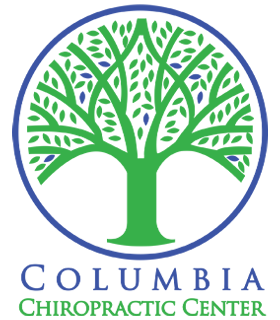Blood Sugar & Neuropathy In Columbia MO

Over the past two decades, diabetes has become increasingly prevalent, affecting a significant portion of the American population and leading to various complications. Among these complications, diabetic neuropathy in Columbia MO has emerged as a prominent and challenging aspect of the disease. This article aims to explore the link between blood sugar levels and neuropathy, the differences between Type 1 and Type 2 diabetes, the evolving treatments for diabetic neuropathy, and additional considerations for managing this condition effectively.
Understanding Diabetes and Neuropathy in Columbia MO
Diabetes affects nearly 26% of Americans, making it a major health concern. Diabetic neuropathy, characterized by nerve damage due to diabetes, presents symptoms such as numbness, tingling, and pain. This condition can significantly impact daily life and requires comprehensive management strategies.
Blood Sugar Control and Neuropathy in Columbia MO
The connection between blood sugar levels and neuropathy is crucial. High blood sugar damages blood vessels that nourish nerves, leading to a range of complications. These complications include skin disorders, high blood pressure, stomach issues, kidney disease, vision problems, and mental health disorders. Effective management of blood sugar levels is key to mitigating these risks.
Type 1 vs. Type 2 Diabetes
Type 1 Diabetes results from the body's inability to produce insulin, typically affecting younger individuals. On the other hand, Type 2 Diabetes is primarily due to insulin resistance, often seen in older individuals with poor dietary habits. Understanding the differences between these types of diabetes is essential for tailored treatment approaches.
Diabetic Neuropathy Treatment Approaches
- Traditional Treatments: Insulin injections and dietary modifications have been standard practices for diabetes management. These measures help regulate blood sugar levels and reduce the risk of complications, including neuropathy.
- Enhanced Glucose Control: A newer approach focuses on aggressively controlling blood glucose levels to prevent or slow the progression of diabetic neuropathy.
- Ideal Blood Sugar Range: Maintaining blood sugar levels between 70-100 mg/dl is optimal for health and reduces the risk of neuropathic complications.
- Challenges and Considerations: While enhanced glucose control shows promise, maintaining safe glucose levels without causing additional complications requires careful monitoring and individualized treatment plans.
- Research and Progress: Ongoing studies explore innovative strategies, such as continuous glucose monitoring and personalized insulin delivery systems, to improve diabetic neuropathy outcomes.
Lifestyle Modifications and Neuropathy Management
In addition to medical interventions, lifestyle modifications play a crucial role in managing diabetic neuropathy. These include:
- Healthy Diet: Emphasizing whole foods, fiber-rich options, and controlled carbohydrate intake can help stabilize blood sugar levels.
- Regular Exercise: Physical activity improves insulin sensitivity, promotes circulation, and aids in neuropathic symptom management.
- Stress Reduction: Stress management techniques, such as mindfulness meditation and relaxation exercises, can alleviate neuropathic pain and improve overall well-being.
- Foot Care: Proper foot hygiene and regular podiatric assessments are essential for preventing diabetic foot complications, a common issue associated with neuropathy.
Integrative Approaches to Neuropathy Care
Complementary therapies and integrative medicine practices can complement conventional treatments for diabetic neuropathy. These may include:
- Acupuncture: Stimulating specific points on the body can help reduce neuropathic pain and improve nerve function.
- Herbal Remedies: Certain herbs and supplements, like alpha-lipoic acid and evening primrose oil, show promise in managing neuropathic symptoms.
- Massage Therapy: Techniques such as reflexology and deep tissue massage can promote relaxation, improve circulation, and alleviate neuropathic discomfort.
- Chiropractic Care: Spinal adjustments and manipulations performed by chiropractors can help improve nerve function, reduce pain, and enhance overall musculoskeletal health, which can indirectly benefit neuropathic symptoms in some individuals. Chiropractic care focuses on aligning the spine and optimizing nervous system function, contributing to holistic neuropathy management strategies.
Patient Education and Support
Empowering patients with knowledge about diabetes and neuropathy is paramount. Educational resources, support groups, and personalized care plans facilitate self-management and enhance treatment outcomes. Regular monitoring of blood sugar levels, medication adherence, and proactive communication with healthcare providers at Columbia Chiropractic Center are integral components of effective neuropathy management.
Future Directions in Neuropathy Research
Continued research and innovation in neuropathy care are essential for advancing treatment options and improving patient outcomes. Areas of focus include:
- Precision Medicine: Tailoring treatments based on individual genetic factors, metabolic profiles, and neuropathic symptoms.
- Neuroprotective Therapies: Developing drugs and interventions that target nerve regeneration and protect against further neuropathic damage.
- Telemedicine: Expanding access to specialized neuropathy care through virtual consultations, remote monitoring, and digital health platforms.
Diabetic neuropathy remains a significant challenge for individuals living with diabetes. Through a comprehensive approach that integrates medical interventions, lifestyle modifications, complementary therapies, patient education, and ongoing research, we can effectively manage neuropathic symptoms, improve quality of life, and reduce the burden of this condition. Our team at Columbia Chiropractic Center in Columbia MO is dedicated to providing personalized care and support for individuals with diabetic neuropathy, helping them navigate their journey to better health and well-being. Contact us today and find out how we can help you!
Monday
8:00am - 6:00pm
Tuesday
7:30am - 5:00pm
Wednesday
8:00am - 6:00pm
Thursday
7:30am - 6:00pm
Friday
Closed
Saturday & Sunday
Closed
Columbia Chiropractic Center
1000 W Nifong Blvd Bldg 6, Ste. 154
Columbia, MO 65203



